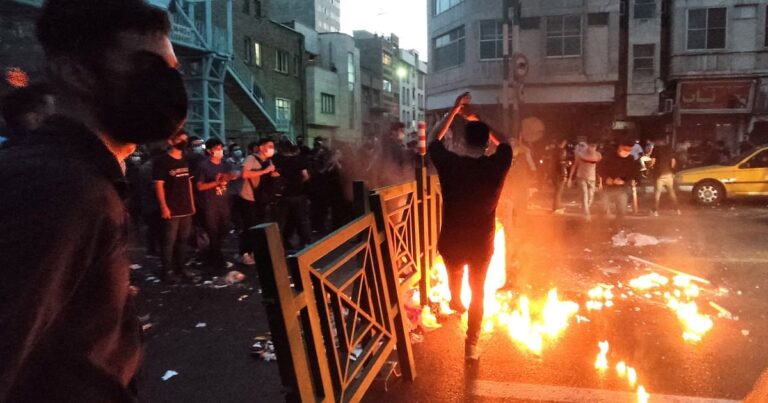DUBAI: Atousa joined the angry protests against Iran’s rulers in 2022 that loyalists like Reza helped crush. Two years on, the two young Iranians’ political views remain at odds, reflecting the rifts that will determine the outcome of presidential elections this week.
Atousa, now 22, said he would abstain from voting on Friday to choose a successor to Ebrahim Raisi, who was killed in a helicopter crash, and viewed the election with ridicule.
But Reza, 26, a devout member of the hardline Basij militia, plans to vote. The contrasting views on the value of elections underscore the divisions in Iran between supporters and opponents of the 45-year-old Islamic republic.
All six candidates – five hard-liners and one a more moderate candidate endorsed by a hard-line watchdog group – are courting young voters in speeches and campaign messages, using social media to reach 60 percent of the country’s 85 million people under the age of 30.
“This election, like all elections in Iran, is a circus. Why should we vote if we want to topple the regime?” Atousa said. ReutersShe declined to give her full name for security reasons.
“Even if the elections were free and fair and all candidates were able to run, the Iranian president would have no power,” she said.
The hashtag “#ElectionCircus” has been widely posted by Iranians on social media platform X over the past few weeks, and some Iranians both at home and abroad have called for a boycott of the elections.
Iran’s clerical system sees an elected president run the day-to-day government, but his powers are limited by those of hardline Supreme Leader Ayatollah Ali Khamenei, who has final say on key issues such as nuclear and foreign policy.
“Voting is a religious duty”
Atousa, like many women and young Iranians, took part in the protests that erupted in 2022 following the death of Mahsa Amini, a young Kurdish woman who was arrested for allegedly violating Iran’s Islamic dress code and died in police custody.
The unrest has blossomed into the biggest protest against Iran’s clerical rulers in years.
Atousa, then a student, was arrested during a protest and expelled from university as punishment for taking part in the demonstration, shattering his dreams of becoming an architect.
The Basij, a plainclothes wing of the elite Revolutionary Guards, deployed alongside uniformed guards during the 2022 unrest and helped quell demonstrations with lethal force.
According to rights groups, more than 500 people, including 71 minors, were killed, hundreds were injured and thousands were arrested in the protests, which were eventually put down by security forces.
Iran has carried out seven executions in connection with the unrest, and authorities have not given an official death toll estimate but have said dozens of security forces were killed in the “unrest”.
“I will give my life for my leadership and the Islamic Republic. Voting is my religious duty. My participation will strengthen the nezam (system),” said Reza, who is from Naziz Abad district, a low-income neighborhood in southern Tehran.
Reza said he would support a hard-line candidate who champions Khamenei’s “resistance economy” – a term that refers to economic self-reliance, closer trade ties with neighboring countries and improved economic exchanges with China and Russia.
Iran’s economy has been plagued by mismanagement, state corruption and sanctions that have been reimposed since 2018 after the United States abandoned a 2015 nuclear deal with six world powers.
Both Reza and Atousa, who were born after the 1979 Islamic Revolution, regret the 2022 protests, though for different reasons.
Reza blamed the protests for increasing pressure on Iran from Western countries, which have imposed sanctions on Iranian security forces and officials for alleged human rights abuses. Iran has accused the West of fomenting the unrest.
“It would have been better if the protests had not taken place… our enemies used it as an excuse to put pressure on our country,” he said.
Atusa looks back on that time with sadness.
“I was hopeful,” she said, “that change would finally come and that I would be able to live a free country and live without oppression. I’ve paid a great price, but the regime is still here.”
Published June 24, 2024 05:53 IST

